1. Chopping Firewood for the Family
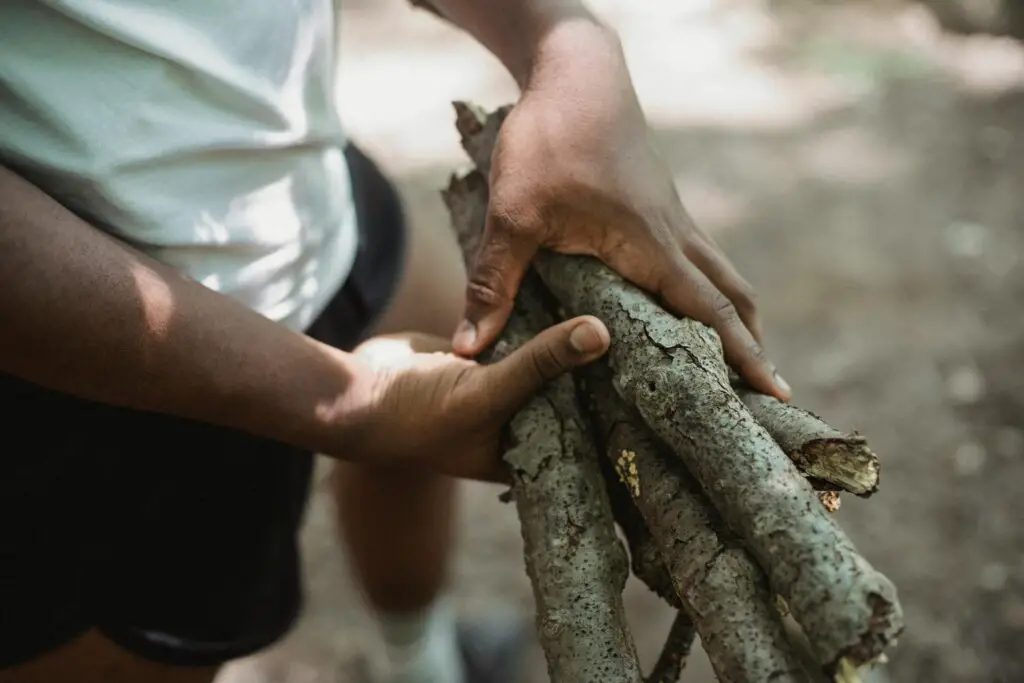
Back in the day, it wasn’t uncommon for children to be tasked with chopping firewood for the family stove or fireplace. This chore, often given to boys, required serious physical effort and safety precautions were minimal. Many families, especially in rural areas, relied on wood as their primary source of heating, and children were expected to contribute by gathering and chopping it. The risks involved were high, from handling axes to the strain of carrying heavy logs, but it was seen as a rite of passage for many.
Today, the idea of sending a child out with an axe would likely spark outrage. Parents would be concerned not only about the potential for injury but also about the physical and emotional strain it could cause. With modern heating systems and the availability of other tools, this chore is long gone, replaced by more age-appropriate responsibilities.
2. Scrubbing the Floor on Hands and Knees
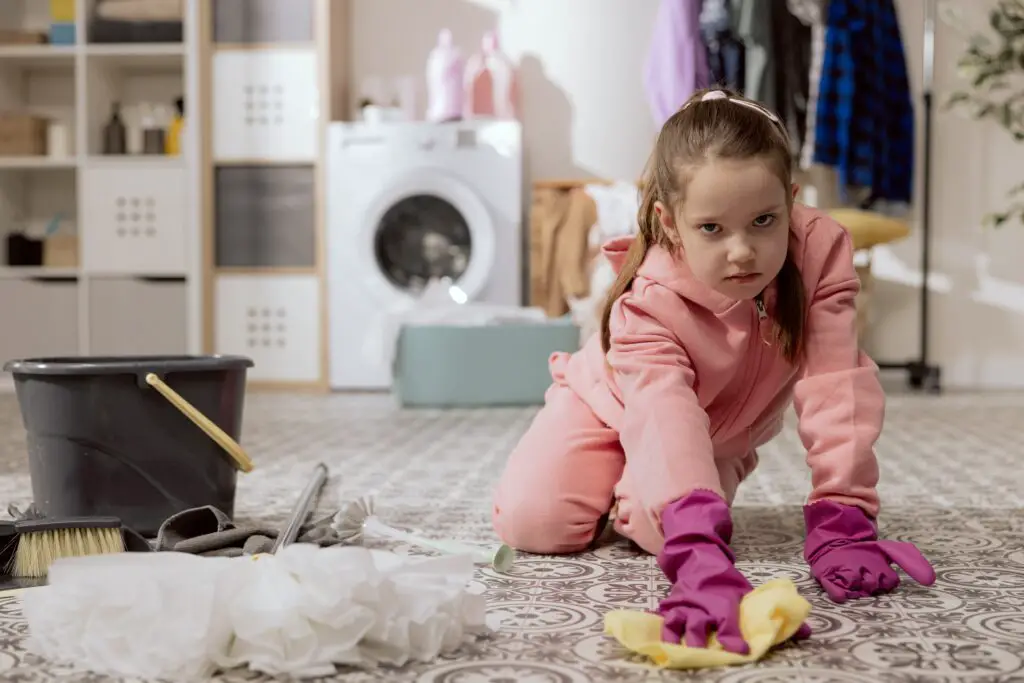
Before the advent of modern cleaning products and tools, scrubbing floors was a tough, manual job. Children were often expected to clean entire rooms by scrubbing them on their hands and knees with soap, water, and a stiff brush. This method was not only exhausting but also harsh on the hands and knees, leaving kids sore and tired by the end of the task. It was seen as an effective way to clean, but also as a form of discipline and responsibility.
In today’s world, the idea of making a child scrub floors in such an uncomfortable and backbreaking way would raise serious concerns about child labor and well-being. With the invention of vacuums, mops, and other cleaning equipment, this hard labor is no longer necessary, and parents are more likely to encourage lighter, less strenuous chores for their children.
3. Polishing Silverware by Hand

In many households, children were responsible for polishing silverware by hand, a tedious and time-consuming job. Armed with silver polish and a cloth, kids would spend hours buffing up the family’s cutlery and serving pieces. The task wasn’t just about cleanliness; it was about maintaining an appearance of wealth and sophistication, especially in middle- and upper-class homes. The sheer detail required, plus the potentially harmful chemicals involved, makes it seem anachronistic today.
Today, this kind of chore would likely raise alarms about both safety and fairness. Most people no longer have silverware that needs polishing by hand, and the idea of asking a child to perform such a detailed and chemical-laden task would likely be viewed as excessive and even dangerous.
4. Ironing Clothes Every Morning
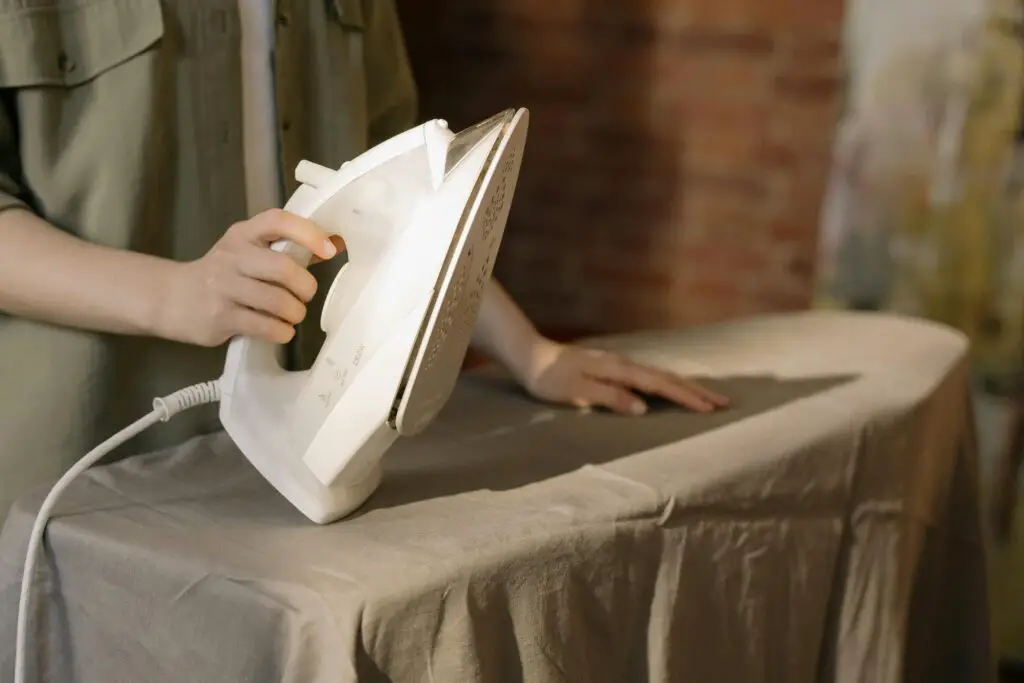
In the past, many children were responsible for ironing their family’s clothes every morning before school. This wasn’t just a quick press of a few shirts; it involved going through every item, including linens and school uniforms, with a hot iron. For many, it was a daily ritual that began before breakfast. It was expected to be done with great care to avoid scorching or wrinkling clothes, a task requiring focus and discipline.
Today, making a child iron clothes would spark outrage, especially with modern wrinkle-free fabrics and steam irons that are easier and safer to use. Not only would parents be concerned about burns and safety issues, but the sheer time commitment for such a repetitive task would seem excessive. The idea of assigning a child to this chore seems outdated and unnecessary in our fast-paced world.
5. Running Errands Alone at a Young Age

In the past, it wasn’t unusual for children to be sent out on errands, such as going to the store to buy groceries or picking up dry cleaning, without parental supervision. This was especially common in smaller towns or rural areas, where neighbors kept an eye on each other’s children. It was assumed that kids could handle simple tasks on their own, even if it meant crossing busy streets or interacting with strangers.
In today’s world, sending a child out alone to run errands would likely be met with alarm. Parents are now more protective, fearing for their child’s safety in a world full of potential dangers. The emphasis has shifted to ensuring children are always supervised, especially when it comes to tasks that involve traveling alone in public spaces.
6. Waking Up Before the Sun to Do Chores
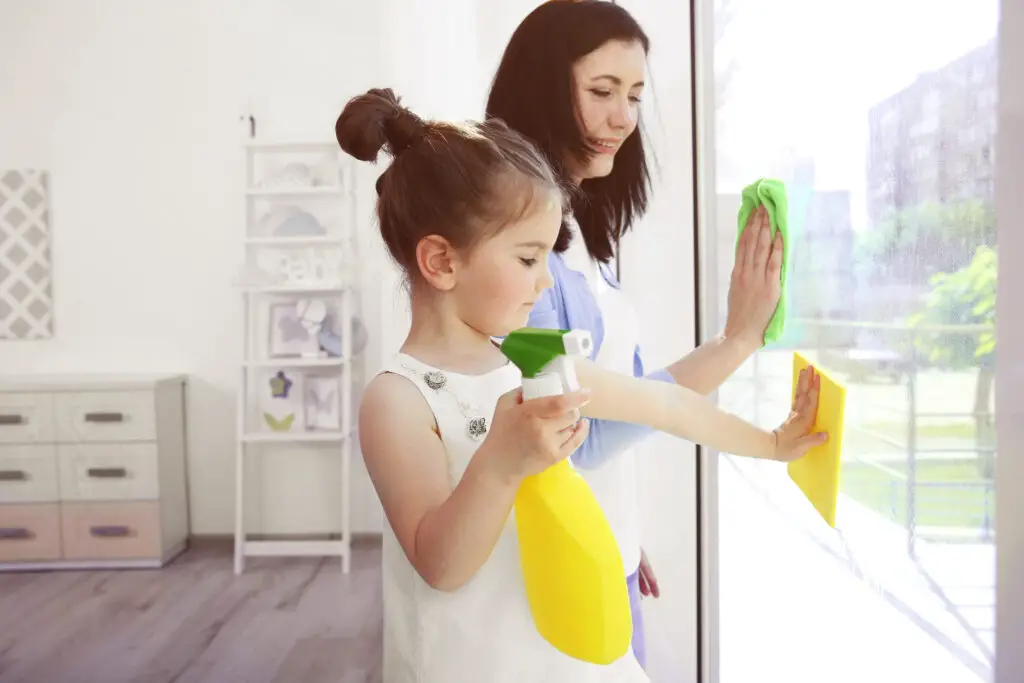
It was common for children to be up before dawn to help with morning chores, whether it was feeding the animals, gathering eggs, or preparing food. In agricultural families, every member had a role to play, and children were expected to contribute as soon as they could walk. Early mornings were considered an essential part of life, with no complaints allowed.
Today, making children wake up before the sun would likely lead to criticism. Experts have highlighted the importance of sleep for children’s development, and any suggestion of denying them adequate rest could lead to accusations of neglect. With a better understanding of how crucial sleep is for kids’ health and well-being, the idea of early-morning labor is largely outdated.
7. Washing Family Laundry by Hand
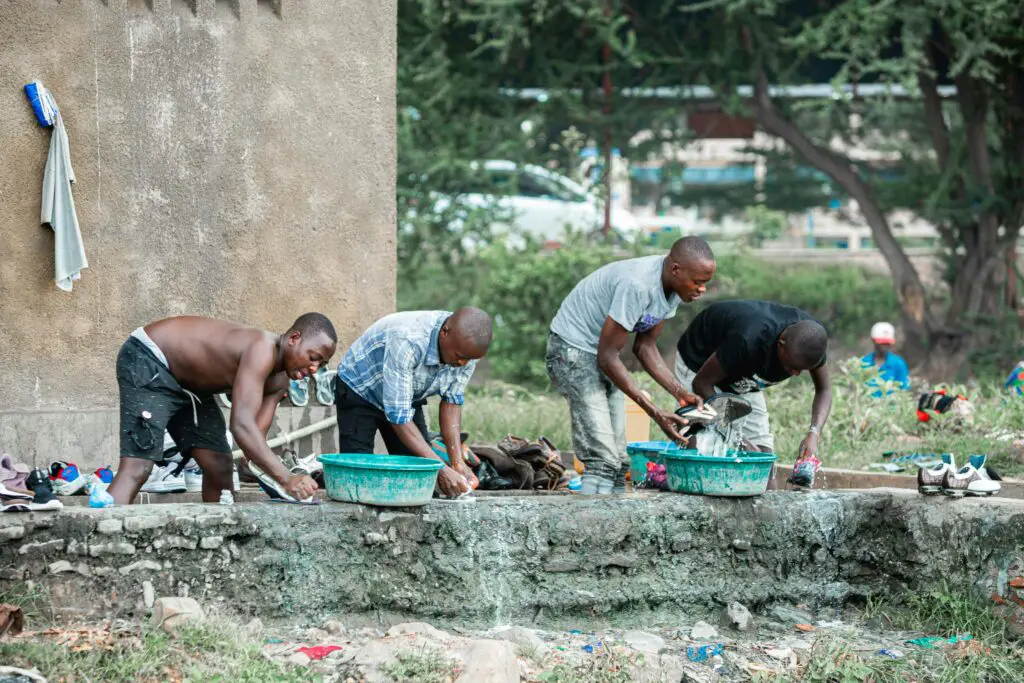
In the days before washing machines, children were often tasked with washing family laundry by hand. This meant scrubbing clothes in large tubs, using lye soap and a washboard to get out dirt and stains. For large families, this could be a full day’s work. It was a dirty and labor-intensive job, but it was often left to children as they became old enough to manage the task.
Today, washing clothes by hand is seen as an outdated and impractical chore. Not only would parents be concerned about the physical toll on children’s hands and backs, but the idea of having kids deal with harsh detergents and dirty laundry in such a labor-intensive way would be seen as unfair and unnecessary, especially with modern washing machines.
8. Shoveling Snow for the Entire Block
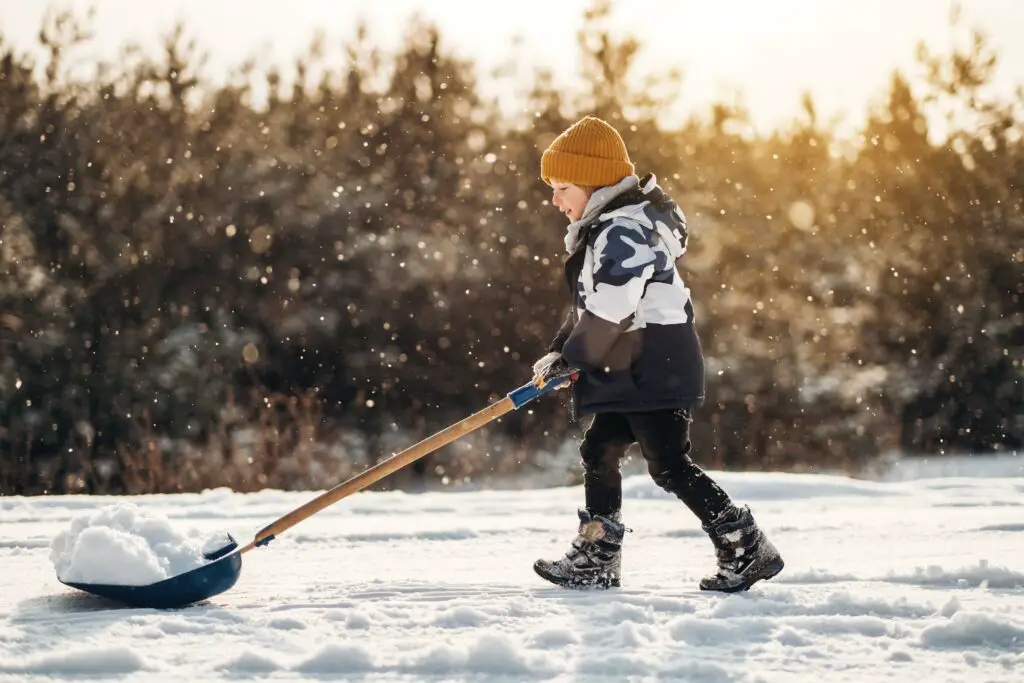
In snowy areas, children were often responsible for shoveling snow, not just from their own driveways but from the sidewalks and walkways of the entire block. The expectation was that kids would bundle up and clear snow after every storm, regardless of the severity. For many, it was a daily winter chore, requiring significant physical effort and time.
In today’s world, parents would likely protest at the idea of their children clearing snow for an entire block. While shoveling is still common, the idea of expecting a child to do it for the whole neighborhood seems unreasonable, especially given the physical strain it puts on kids. Plus, with modern snow blowers and more snow removal services, this chore has become far less common for young children.
9. Babysitting Siblings All Day

In the past, older children were often expected to babysit their younger siblings for long hours, sometimes even while their parents were at work. This meant being responsible for feeding, playing, and sometimes even schooling younger children, all without much guidance. It was considered a way to teach responsibility but could also be overwhelming, especially for younger children with large age gaps between them and their siblings.
Today, the idea of a child being left in charge of younger siblings for extended periods would spark outrage. Parents today are much more careful about ensuring that older children are given appropriate breaks and that younger children are properly supervised by trained adults. The responsibility of all-day babysitting is now more likely to be handled by a professional rather than an older sibling.
10. Cleaning the Chimney
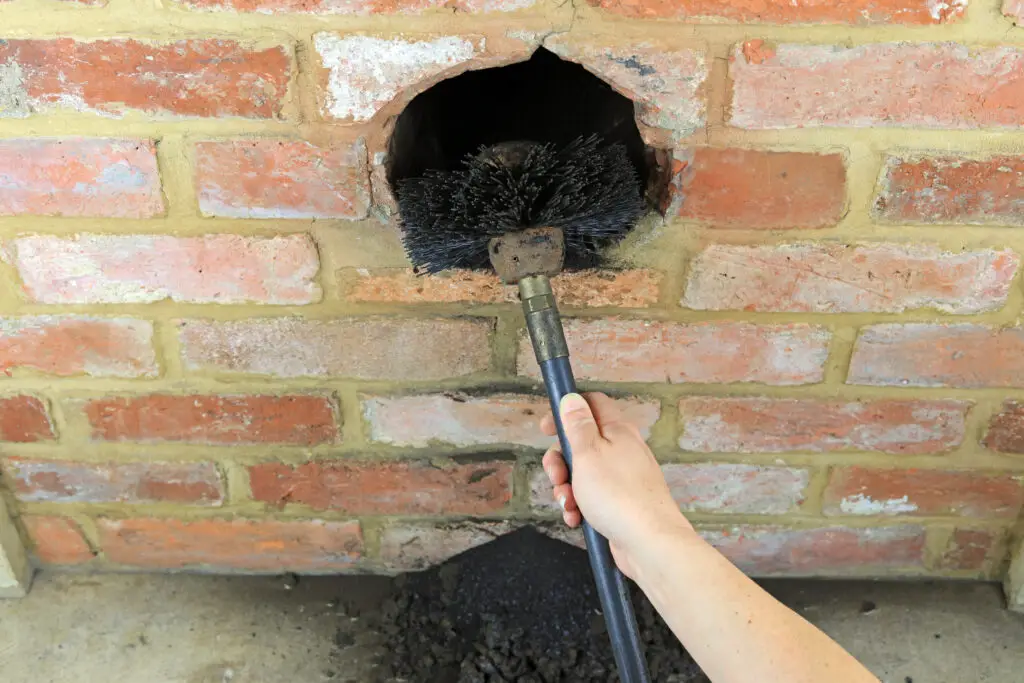
Before the days of gas fireplaces and central heating, cleaning the chimney was a job that often fell to children. Climbing up onto the roof, sweeping out soot, and ensuring the chimney was clear of debris were all part of the task. This dangerous job could involve working with harsh chemicals and climbing ladders or steep roofs—tasks far beyond what many would consider appropriate for children.
In today’s world, asking a child to clean a chimney would be considered not only dangerous but irresponsible. Child safety laws and better chimney-cleaning methods make this kind of task obsolete. Parents today would be far more likely to hire a professional than put their child at risk with such a hazardous chore.
11. Working in the Family Garden for Hours

Many families in rural America depended on gardens for food, and children were expected to help maintain them. This meant hours of weeding, planting, and harvesting crops—often in extreme weather conditions. It was common for kids to be expected to work alongside their parents to ensure the garden’s success, and this task could take up entire weekends.
While gardening is still a popular family activity, making children spend hours in the garden with little regard for weather conditions or breaks would spark outrage today. Parents are more likely to supervise or assist their children with these tasks rather than putting the full responsibility on them. The physical toll and long hours would be considered exploitative by modern standards.
12. Working in the Family Business from a Young Age

In many families, children were expected to help run the family business, whether it was a farm, a store, or a restaurant. This could mean everything from serving customers to doing manual labor or even bookkeeping. In some cases, children worked full-time in the family business from a young age, often contributing more than many would consider fair today.
In modern times, the idea of children working full-time in the family business would raise concerns about child labor and education. Today, children are generally expected to focus on their studies and personal development rather than working long hours in a family-run operation. The practice is now largely considered unethical, with strict laws protecting children from being overworked.
13. Carrying Heavy Groceries for Miles

Before the days of cars and modern transportation, children were often responsible for carrying heavy grocery bags for miles. This task usually involved long walks to the local store, where children would fill bags with bulky items like flour, sugar, and canned goods. It was common for kids to have to make multiple trips back and forth to get the day’s supplies, carrying heavy loads that tested their endurance.
Today, the idea of sending a child out to carry heavy bags for miles would seem unreasonable, especially in a world where grocery delivery services and vehicles are widely accessible. Parents would be concerned about the physical toll such a task would take on their child, and the idea of making kids carry heavy loads through unsafe areas would spark outrage.
